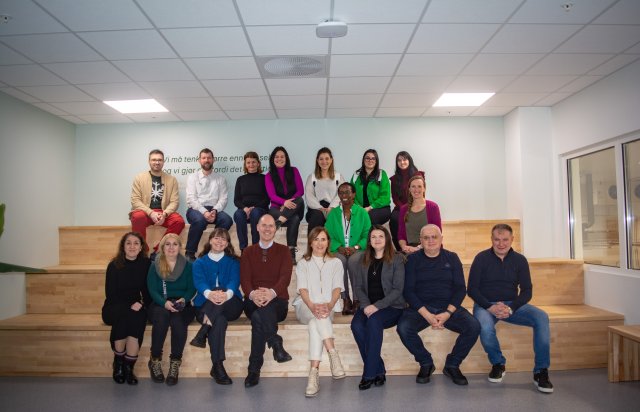Bilateral study tours
Bilateral cooperation in the form of study tours between Romania and Norway strengthened project collaboration and efforts towards a more green and circular transition in industries.
Study tour in Romania
The visit to Cluj Industrial Park in Cluj-Napoca, Romania took place 9-11 December 2024. During the visit, the project team explored local business practices focusing on energy conservation, waste reduction and circular economy practices. The visit provided an opportunity to identify parallels with Norwegian industrial parks and assess the potential for implementing shared solutions in both countries.
The management team of Cluj Industrial Park offered a comprehensive overview of their operations and sustainability initiatives. While the park has begun adopting circular practices, there remains significant potential for development, particularly in integrating resource-sharing frameworks and energy-efficient technologies. The project team also had the opportunity to visit three businesses located within the park.
The visit highlighted both the progress and the significant potential for further advancement in circular business and energy conservation at Cluj Industrial Park. It was highlighted that by fostering stronger collaboration between Romanian and Norwegian industrial parks, we can share expertise and co-develop solutions that benefit both regions.
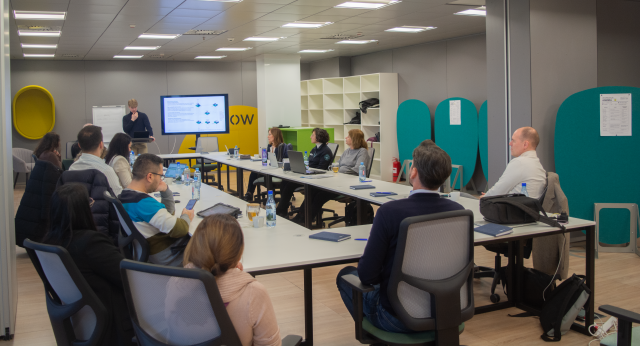
Study tour in Norway
The visit to Orkanger and Trondheim, Norway took place 13-16 January 2025. The project team explored the operational frameworks of key industrial facilities, innovative energy management strategies, and the development of green industrial parks. These engagements underscored the crucial role of collaboration between municipalities, businesses, and other stakeholders in achieving sustainable development goals.
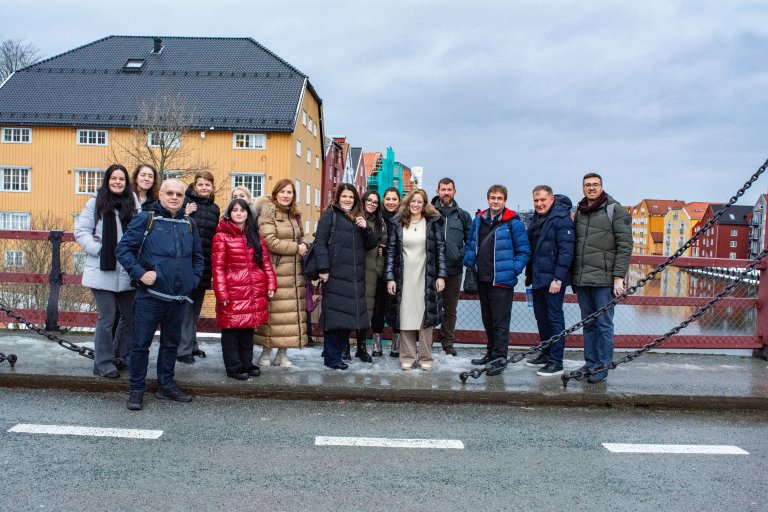
Highlights from day 1
The project team visited Norsk Kylling, which provided an example of resource efficiency and innovative waste management in the food processing sector. At Orkland Energy AS the project team learned how excess heat generated from Elkem’s silicon production facility is captured, processed, and redistributed to surrounding industries by the municipally owned company.
Through discussion it was emphasized that the success of industrial symbiosis in the region hinges on strong collaboration and trust between stakeholders, and that open dialogue among companies fosters shared opportunities and lasting synergies. Local legislation also plays a pivotal role in encouraging sustainable practices, such as the mandatory use of sustainable heating systems in industrial parks. The region’s approach to district heating and cooling showcases scalable solutions that can inspire similar initiatives in other parts of the world.
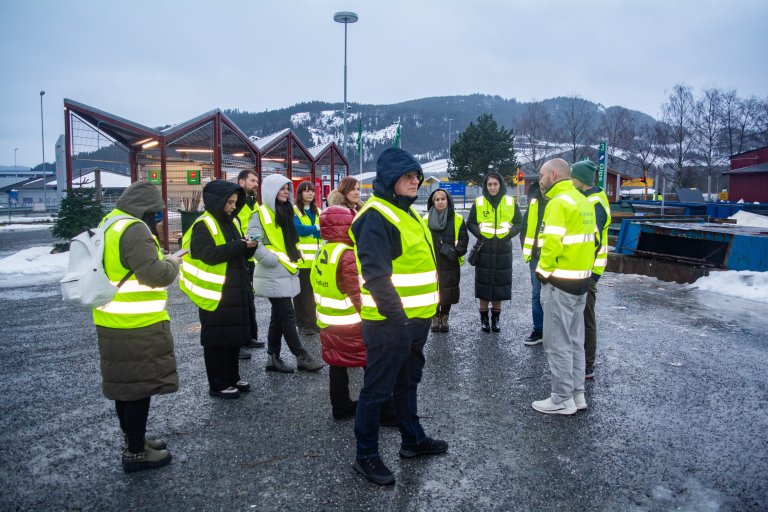
Highlights from day 2
The project team toured the Energy Storage and Conservation laboratory at the Norwegian University of Science and Technology (NTNU) which showcased cutting-edge research and applications in sustainable energy, offering inspiration for similar developments in Romania.
James Woodcock, representing International Synergies Limited, provided a workshop on creating zero-waste industrial parks based on Hubs4Circularity European Community of Practice. His presentation detailed how European regions could establish zero-waste industrial parks through structured approaches to industrial symbiosis. Read more about the workshop here. Thamsklyngen also demonstrated their model of industrial collaboration.
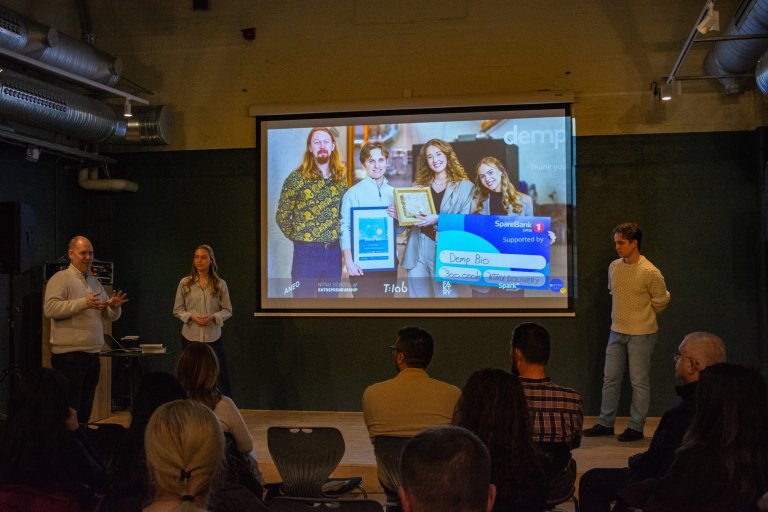
Highlights from day 3
On the final day of the study tour, the project team and invited guests had the opportunity to share presentations of their activities within industrial symbiosis. Stakeholders included Trondheim Municipality, Trøndelag County, and Haugalandet Industrial Symbiosis. Pawel Krzeminski from NIVA provided an overview of the COST LIAISE Action, emphasizing cooperation, development, and the cross-border transfer of industrial symbiosis practices. This initiative underscores the significance of fostering international collaboration to drive sustainable industrial growth. The Romanian delegation also delivered impactful presentations.
In the afternoon, James Woodcock introduced the SYNERGie® software platform, which facilitates resource mapping and synergy identification. Participants had the opportunity to perform hands-on exercises using the platform to document available resources and needs within their industrial parks. Read more about the workshop here.
Key takeaways
Face-to-face interactions during this visit emphasized the added value of direct engagement, enabling a deeper understanding of concepts and fostering meaningful discussions. Visiting Norsk Kylling and Orkland Energy AS demonstrated innovative practices such as the use of excess heat for district heating systems, seawater for industrial cooling, and advanced rainwater reuse mechanisms.
Key takeaways include the importance of integrating industrial symbiosis principles during the design phase of projects as well as facilitator clusters in coordinating efforts and building trust. These study tours demonstrate the great potential interdisciplinary collaboration can bring in achieving innovation sustainable industrial growth.
